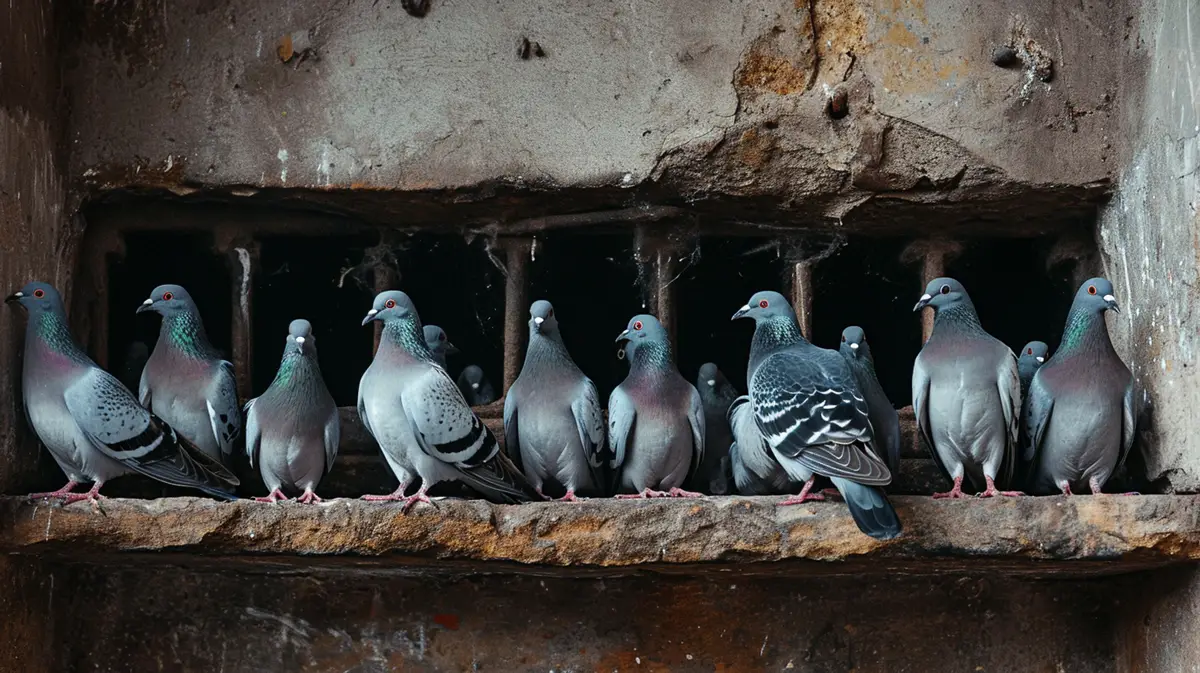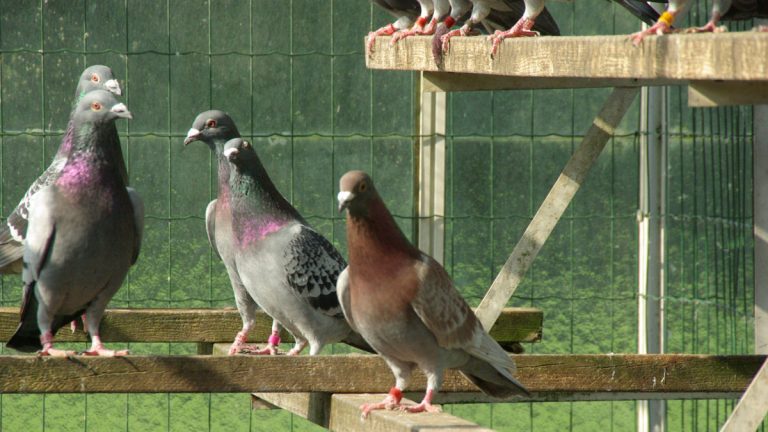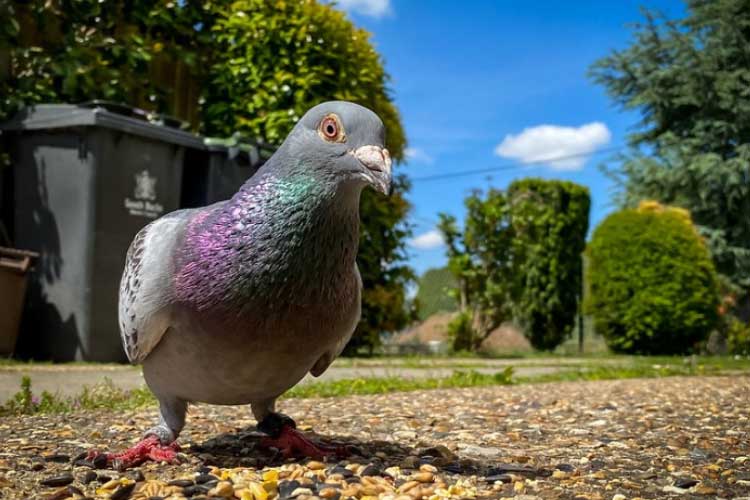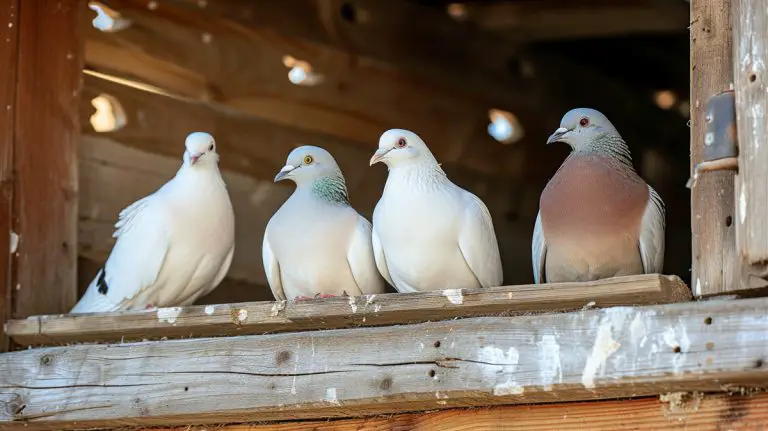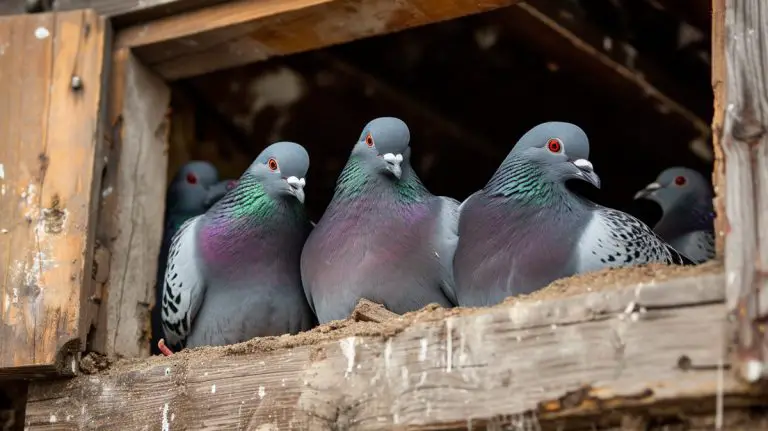Is It Legal to Keep Pigeons as Pets? Find Out Now
Pigeons, with their gentle cooing and graceful flight, have long been a source of fascination for humans. Many people are drawn to these beautiful birds and may wonder if it is legal to keep them as pets. In this article, I’ll delve into the legalities surrounding pigeon ownership and provide you with the information you need to know.
When it comes to keeping pigeons as pets, the legality can vary depending on your location. Different countries, states, and even cities may have their own regulations and restrictions in place. It’s important to understand the specific laws in your area to ensure you are in compliance.
So, if you’ve ever pondered the idea of having a pigeon as a companion, join me as we explore the legalities of pigeon ownership and uncover the guidelines you need to follow to keep these captivating creatures as pets. Let’s dive in and discover if it’s legal to keep pigeons as pets in your neck of the woods.
Understanding Pigeon Ownership Laws

As a responsible pet owner, it’s important to understand the laws and regulations surrounding pigeon ownership. Each location may have its own specific guidelines and restrictions, so let’s take a closer look at what you need to know:
- Research local regulations: The first step is to research the laws in your specific area regarding the ownership of pigeons. Contact your local government offices, such as animal control or zoning departments, to find out if there are any specific restrictions or permits required.
- Zoning regulations: In some areas, there may be zoning ordinances that dictate where pigeons can be kept. These regulations aim to maintain a balance between the rights of pet owners and the concerns of neighbors. It’s important to understand if there are any zoning restrictions that apply to your property.
- Permits and licenses: Certain locations may require pet owners to obtain permits or licenses for keeping pigeons as pets. These permits may have specific requirements, such as minimum housing standards or limits on the number of birds allowed. Be sure to check if you need any permits or licenses to legally keep pigeons as pets.
- Health and safety regulations: Pigeons, like any other pets, need proper care to ensure their health and prevent any potential risks. Some areas may have additional health and safety regulations in place for pigeon owners, such as mandatory vaccinations or regular inspections. Make sure to be aware of and comply with these regulations.
- Nuisance and noise regulations: One common concern with pigeon ownership is the noise or nuisance they may cause to neighbors. It’s important to understand if there are any regulations in your area that address noise or nuisance issues related to pigeons. Following these regulations will help maintain positive relationships with your neighbors.
Remember, the regulations and restrictions surrounding pigeon ownership can vary widely depending on your location. It’s crucial to do your due diligence and fully understand the laws applicable to you. By being a responsible pet owner and adhering to the laws, you can enjoy the companionship of pigeons while maintaining a harmonious relationship with your community.
Legal Considerations on Pigeon Ownership
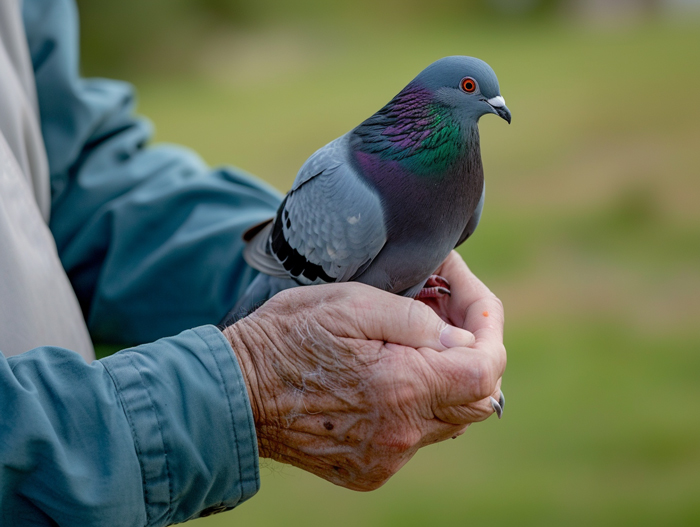
When considering keeping pigeons as pets, it’s important to understand the legalities surrounding pigeon ownership. This section will highlight key legal considerations to keep in mind:
- Research Local Regulations: Before getting pigeons as pets, it’s crucial to research and understand the regulations specific to your location. Different areas may have varying rules and restrictions regarding pigeon ownership.
- Zoning Ordinances: Some cities or neighborhoods have specific zoning ordinances that regulate the keeping of domestic animals, including pigeons. Make sure you are aware of any zoning restrictions that may apply to pigeon ownership in your area.
- Permits or Licenses: Certain jurisdictions may require permits or licenses to own pigeons. Check with your local government authorities to ensure that you comply with any necessary paperwork or procedures.
- Health and Safety Regulations: Pigeon owners are responsible for maintaining the health and safety of their pets as well as the surrounding environment. Familiarize yourself with any regulations concerning proper care, hygiene, and disease prevention for pigeons.
- Nuisance and Noise Regulations: Pigeons can be noisy, especially if kept in large numbers. Be aware of any nuisance and noise regulations in your area and take steps to minimize disturbances to your neighbors.
As a responsible pet owner, it’s important to adhere to the laws and regulations in your area to ensure a positive and harmonious relationship with your community. By following these legal considerations, you can enjoy the companionship of pigeons while staying on the right side of the law.
Remember, this section doesn’t have a conclusion paragraph or sentence, as it will seamlessly transition to the next part of the article.
Laws and Regulations by Location
When it comes to keeping pigeons as pets, it’s important to be aware of the laws and regulations specific to your location. The rules can vary from place to place, so doing some research is essential. Here are some key things to consider:
- Local regulations: Start by researching the regulations in your city or town. Some places may have specific restrictions or requirements when it comes to owning pigeons. It’s crucial to find out what these are to ensure that you are in compliance with the law.
- Zoning ordinances: Check if your area has zoning ordinances related to keeping pigeons. These ordinances determine whether or not you are allowed to have pigeons as pets in residential areas. Knowing and abiding by these rules will help you avoid any legal issues.
- Permits or licenses: In some locations, you may need to obtain permits or licenses to own pigeons. This is especially true if you have a larger number of pigeons or if you plan to breed them. Make sure to find out if these are required and take the necessary steps to acquire them if needed.
- Health and safety regulations: Keeping pigeons as pets also involves ensuring their well-being and the safety of your community. Familiarize yourself with any health and safety regulations that apply to keeping pigeons. This includes providing proper housing, taking care of their nutritional needs, and maintaining a clean environment.
- Nuisance and noise regulations: Pigeons can be noisy, and their droppings may cause damage or create a nuisance for others. It’s important to be aware of any regulations that address noise levels and nuisance caused by pigeons. Take measures to mitigate any negative impact on your neighbors and the community.
By understanding and adhering to the laws and regulations, you can enjoy keeping pigeons as pets while maintaining a positive and harmonious relationship with your community.
Remember, it’s always best to consult with local authorities or seek legal advice if you are unsure about any specific regulations in your area.
Researching Local Pigeon Ownership Laws
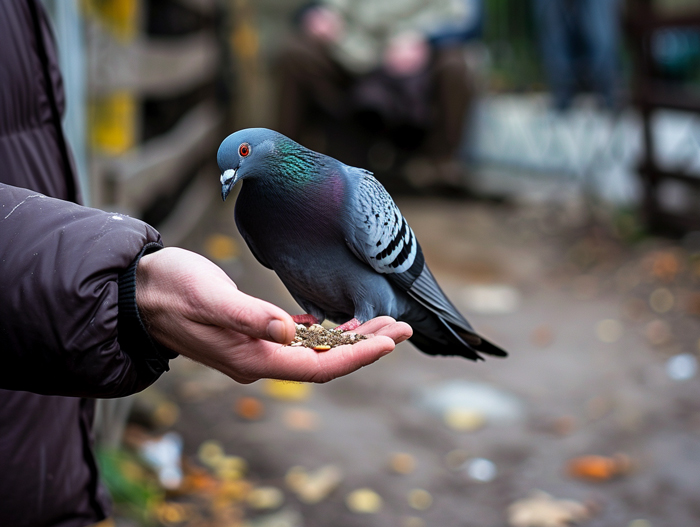
When considering keeping pigeons as pets, it’s crucial to understand the laws and regulations specific to your location. Here are some key points to keep in mind when researching local pigeon ownership laws:
- Check Local Regulations: Start by researching your city or town’s regulations on keeping pigeons as pets. Some areas may have specific guidelines or restrictions in place.
- Zoning Ordinances: Look into zoning ordinances that may affect pigeon ownership in your area. Certain zones may prohibit or limit the keeping of pigeons. Make sure you are aware of the specific requirements for your location.
- Permits and Licenses: Find out if you need to obtain any permits or licenses to keep pigeons. Some areas may require you to register your pets or comply with specific regulations to ensure the health and safety of both the pigeons and the community.
- Comply with Health and Safety Regulations: Understand and comply with any health and safety regulations that apply to pigeon ownership. This may include regular vaccinations, proper housing conditions, and maintaining a clean environment for the pigeons.
- Nuisance and Noise Regulations: Be aware of any nuisance and noise regulations that may apply to keeping pigeons. This is particularly important if you live in close proximity to other residents. Ensure that your pigeons do not create disturbances or annoyances for your neighbors.
Remember, adhering to the laws and regulations related to pigeon ownership is vital to maintaining a positive and harmonious relationship with your community. If you’re unsure about any specific regulations, it’s always a good idea to consult with local authorities or seek legal advice.
By researching and understanding the local pigeon ownership laws, you can ensure that you are in compliance and can enjoy keeping pigeons as pets responsibly.
Keeping Pigeons as Pets: Compliance and Responsibility
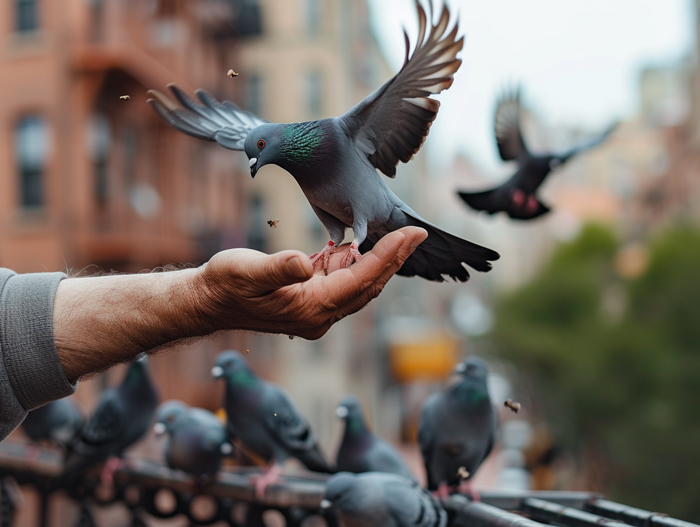
When it comes to keeping pigeons as pets, it’s crucial to understand the importance of compliance and responsibility. As a responsible pet owner, there are a few key considerations to keep in mind to ensure a harmonious relationship with your community and to comply with legal regulations.
- Research Local Regulations: Before bringing pigeons into your home, it’s essential to research and understand the local regulations regarding pet pigeons. Being aware of the specific rules and restrictions in your area will help you avoid any legal issues down the line.
- Zoning Ordinances: Check for any zoning ordinances that may restrict or regulate pigeon ownership. Some areas might have restrictions on the number of pigeons you can keep or specific zones where pigeons are not allowed. Understanding these regulations will help you determine whether pigeon ownership is feasible in your location.
- Permits and Licenses: Depending on where you live, you may need to obtain permits or licenses to keep pigeons as pets. Check with your local authorities to determine if any additional paperwork is required. It’s important to comply with these requirements to avoid fines or other penalties.
- Health and Safety Regulations: The health and safety of your pigeons, as well as your neighbors, should be a top priority. Ensure that you provide a clean and safe environment for your pigeons, keeping their living areas well-maintained and observing proper hygiene practices. Additionally, it’s important to regularly vaccinate your pigeons and seek veterinary care when needed.
- Nuisance and Noise Regulations: Pigeons can generate noise and potentially create a nuisance for your neighbors if not managed properly. Familiarize yourself with any noise regulations or nuisance laws that exist in your area. Taking steps to mitigate noise, such as maintaining a well-designed enclosure and minimizing disruptions, can help you maintain a positive relationship with your community.
Remember, compliance and responsibility go hand-in-hand when keeping pigeons as pets. By understanding and adhering to the laws and regulations in your area, you can enjoy the companionship and beauty of pigeons while fostering a positive relationship with your community. If you’re ever unsure about any specific regulations, it’s advisable to consult with local authorities or seek legal advice for guidance.
Conclusion
It is essential to be well-informed about the legalities of keeping pigeons as pets. Understanding and adhering to the laws and regulations specific to your location is crucial in ensuring a positive and responsible ownership experience.
Researching local regulations is the first step in determining the legality of pigeon ownership in your area. Additionally, familiarizing yourself with zoning ordinances is important to ensure that you are in compliance with any restrictions on pet ownership.
Obtaining the necessary permits or licenses, if required, is another important consideration. This ensures that you are meeting all legal requirements and can enjoy your pet pigeons without any legal complications.
Complying with health and safety regulations is equally important. This includes providing proper care, hygiene, and housing for your pigeons, as well as ensuring that they do not pose any health risks to the community.
Lastly, being aware of nuisance and noise regulations is essential in maintaining a harmonious relationship with your neighbors. Respecting their peace and quiet by minimizing noise and addressing any concerns promptly is crucial.
If you have any doubts or uncertainties regarding specific regulations, it is advisable to consult with local authorities or seek legal advice. They can provide you with accurate and up-to-date information regarding the legalities of keeping pigeons as pets in your area.
Remember, by being knowledgeable, compliant, and responsible, you can enjoy the companionship of pet pigeons while also maintaining a positive relationship with your community.
